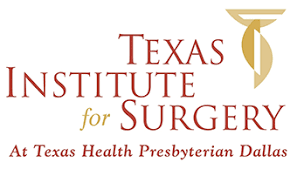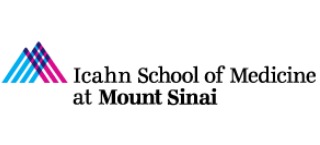Research

Algorithmic Decision Making
The pervasiveness of data promises significant opportunities to improve decision-making by using algorithms, analytical tools that use available data and produce an output (such as a prediction or a recommendation). In healthcare, transforming care into a reliable and evidence-based undertaking with a focus on data-driven decision-making has been a significant motivation. My research efforts in algorithmic decision-making are based on this motivation and focus on critical medical decisions that physicians need to make in their day-to-day encounters with patients. I focus on two inter-related streams of research. The first is medical decision-making, in which I develop optimization models and calibrate them using real data to improve critical decisions made by medical professionals. The prescriptions of the models inform macro-level policy choices for such decisions. The second substream is value creation and pitfalls, in which I address (i) how and when predictive algorithms create value and (ii) the issues associated with the algorithmic approach to decision-making.

Economics of Information/IT
My work on the economics of information and health IT focuses on the value and impact of various technologies such as health information exchanges and designing incentive mechanisms to induce meaningful use of those technologies. The motivation is that the use of information technologies can help solve some problems while also creating others–often referred to as digital vulnerabilities. For example, while offering several benefits such as increased transparency and better decision making, increased information visibility can also enable or exacerbate concerns such as privacy issues, intellectual property theft, and behavioral biases. The systematic resistance to information sharing across healthcare organizations (i.e., through HIEs) is another example. The coopetitive nature of HIEs and the agency problems inherent to healthcare present a great opportunity for further research into understanding the relationships amongst stakeholders including patients, providers, payers, and policymakers

Medical Informatics
I primarily use various data mining techniques and information theory in my medical informatics research. In particular, predictive modeling for estimating disease risk, the value of information for diagnosing diseases, and natural language processing for processing textual data are areas that are very important for the current health environment. Some of these efforts also constitute the preliminary step of parameter estimation in numerically validating the optimization models. I have published this line of research in clinical and informatics journals. Some of these research pieces require substantial domain knowledge. In this line of research, I am often the methods expert and also contribute to other aspects while doctors provide the contextual expertise as well as guidance in conducting the study.
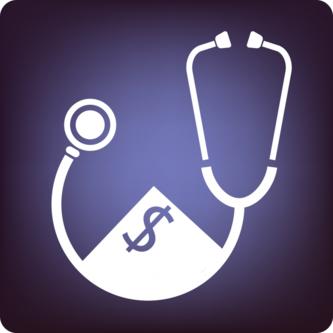
Health Economics
Medical decision-making is the applied and theoretical analysis of clinical decisions using primarily the methods studied by the Decision Analysis field. The objective is to maximize the utility (e.g., quality-adjusted expected life or expected life) from an individual’s or society’s perspective. When individuals optimally prefer a strategy because of high effectiveness while societal perspective indicates another strategy from resources standpoint, which strategy is cost-effective becomes an important research question for health policy and medical decision-making. In my health economics work, I focus on cost-effectiveness or comparative effectiveness of medical decisions, to contribute to the understanding of this inefficiency.
Selected Work (My SSRN Page) (My ResearchGate Page)
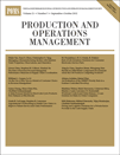
The Impact of Health Information Exchanges on Emergency Department Length of Stay
Production and Operations ManagementHealth information exchanges (HIEs) are expected to improve information coordination in emergency departments (EDs), but their impact on ED operations remains poorly understood. We study the effect of HIE on ED length of stay (LOS) based on about 7.4 million ED visits in Massachusetts. We find that HIE a) reduces ED LOS overall by 10.2%, b) is even more effective in teaching hospitals, c) is less effective in crowded EDs, and d) its effectiveness depends on severity and complexity of the patients. Our findings have implications for the nationwide HIE adoption.
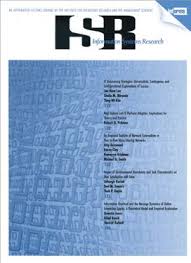
When Algorithmic Predictions Use Human-Generated Data: A Bias-Aware Classification Algorithm for Breast Cancer Diagnosis
Information Systems ResearchWhat is the optimal design of a classification algorithm that accounts for human bias in input data and what is its value? In the context of breast cancer diagnosis, clinical-risk information of a patient could bias a radiologist's assessment of the mammogram for that patient. A bias-aware classification algorithm has the potential to be of significant value if integrated into a clinical decision support system (CDSS) used by the referring physician, who decide on the final course of action based on clinical-risk information and the radiologist's assessment.
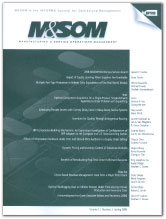
Value of Algorithm-Enabled Process Innovation: The Case of Sepsis
Manufacturing and Service Operations ManagementPredictive algorithms have an increasingly important role in supporting the day-to-day operations of businesses. This paper studies how and when algorithm-enabled process innovation (AEPI) creates value, particularly in the context of changing operational environments and the behavioral responses to algorithmic predictions. We contextualize the broad research problem into the implementation of an alert system in a hospital for early identification and treatment of sepsis. We leverage a rich set of clinical and nonclinical data and econometric approaches to examine the relationship between sepsis AEPI and patient mortality.

Designing Payment Contracts for Healthcare Services to Induce Information Sharing: The Adoption and the Value of Health Information Exchanges (HIEs)
Mis QuarterlyDiffusion of health information outside the boundaries of an organization through health-information exchanges (HIEs) is a critical step in achieving socially desirable care outcomes. In this paper, we study the relationships among a payment model, providers' incentives to adopt HIEs, and the value of HIEs using a game-theoretical model. We demonstrate that assessing the value of HIEs in isolation from the underlying payment mechanism and patient switching behavior may result in under- or overestimation of the HIE value. Therefore, as payment models evolve over time, there is a real need to reevaluate the value of HIE adoption and the government policies that induce providers to adopt HIE.
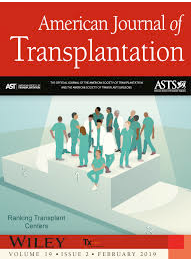
Transplant physician and surgeon compensation: A sample framework accounting for nonbillable and value-based work
American Journal of TransplantationNew compensation models for transplant professionals must (1) justify payments for nonbillable work related to transplant activity/procedures; (2) capture the entire academic, clinical, and relationship‐building work effort as part of RVU determination; and (3) move toward a value‐based compensation scheme that aligns the incentives for physicians, surgeons, transplant center, payers, and patients. In this review, we provide an example of redesigning RVUs to address these challenges in compensating transplant physicians and surgeons.

Preference-sensitive Management of Post-mammography Decisions in Breast Cancer Diagnosis
Production and Operations ManagementDecision models representing the clinical situations where treatment options entail a significant risk of morbidity or mortality should consider the variations in risk preferences of individuals. In this study, we develop a stochastic modeling framework that optimizes risk-sensitive diagnostic decisions after a mammography exam. Using a risk-sensitive finite-horizon MDP model, we provide medical/policy insights. We empirically validate our model and demonstrate that the current medical practice of breast biopsies resemble risk-seeking behavior.

When IT Creates Legal Vulnerability: Not Just Overutilization but Underprovisioningof Health Care Could be a Consequence
Mis QuarterlyThere is a growing interest in better understanding the new vulnerabilities due to the adoption and the use of information technology (IT). We examine one such vulnerability, viz., the heightened litigation risk due to information sharing enabled by IT, in a typical health care context. Using a game-theoretic model, we find that socially optimal policies may require underprovisioning of health care in the presence of health IT. Limits on malpractice damage can alleviate the underprovisioning of health care.

The Effect of Budgetary Restrictions on Breast Cancer Diagnostic Decisions
Manufacturing and Service Operations ManagementWe develop a finite-horizon discrete-time constrained Markov decision process (MDP) to model diagnostic decisions after mammography where we maximize the total expected quality-adjusted life years (QALYs) of a patient under resource constraints. We use clinical data to estimate the parameters of the MDP model and solve it as a mixed-integer program. By repeating optimization for a sequence of budget levels, we calculate incremental cost-effectiveness ratios attributable to consecutive levels of funding and compare actual clinical practice with optimal decisions.
Select Institutions of Research Collaborators




